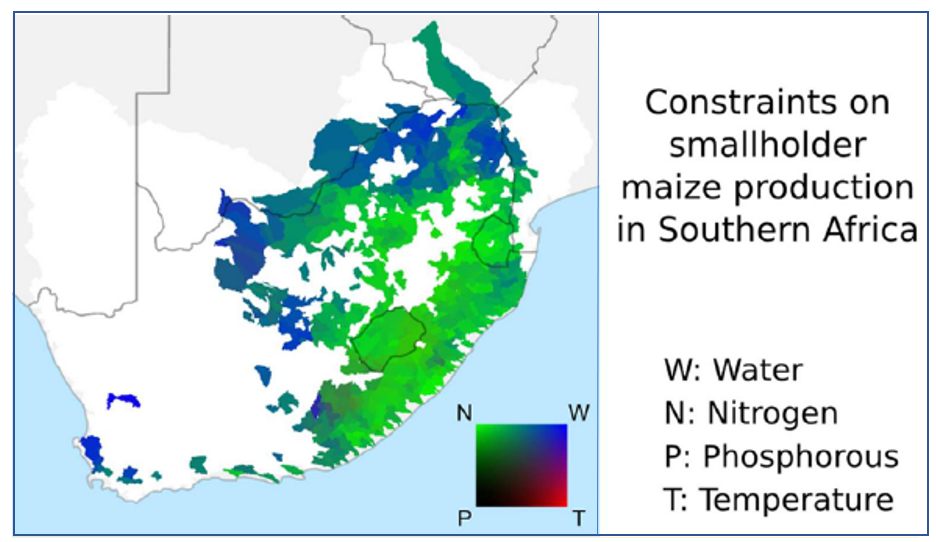Improving crop yield and water productivity in Southern Africa

In this project, we quantified the potential effects of a set of technologies to address water and fertility constraints in rainfed smallholder agriculture in South Africa, namely in situ water harvesting (WH), external WH, and ecological sanitation (Ecosan, fertilization with human urine). We used the Soil and Water Assessment Tool to model spatiotemporally differentiated effects on maize yield, river flow, evaporation, and transpiration. Ecosan met partial plant nitrogen demands, which significantly increased maize yields by 12% and transpiration by 2% on average across South Africa. In situ and external WH did not significantly affect the yield, transpiration, or river flow on the South Africa scale. However, external WH more than doubled the yields for specific seasons and locations. WH notably increased the lowest yields. Significant water and nutrient demands remained even with WH and Ecosan management. Additional fertility enhancements raised the yield levels and yield variability, whereas soil moisture enhancements improved the yield stability. Hence, coupled policies addressing both constraints will likely be most effective for improving food security.
Ecosan is low-cost ecological sanitation: recycling nutrients from human
excreta to agriculture. The Ecosan strategy aims to simultaneously improve
sanitation, prevent pollution, and enhance soil fertility by turning waste into
a resource.
